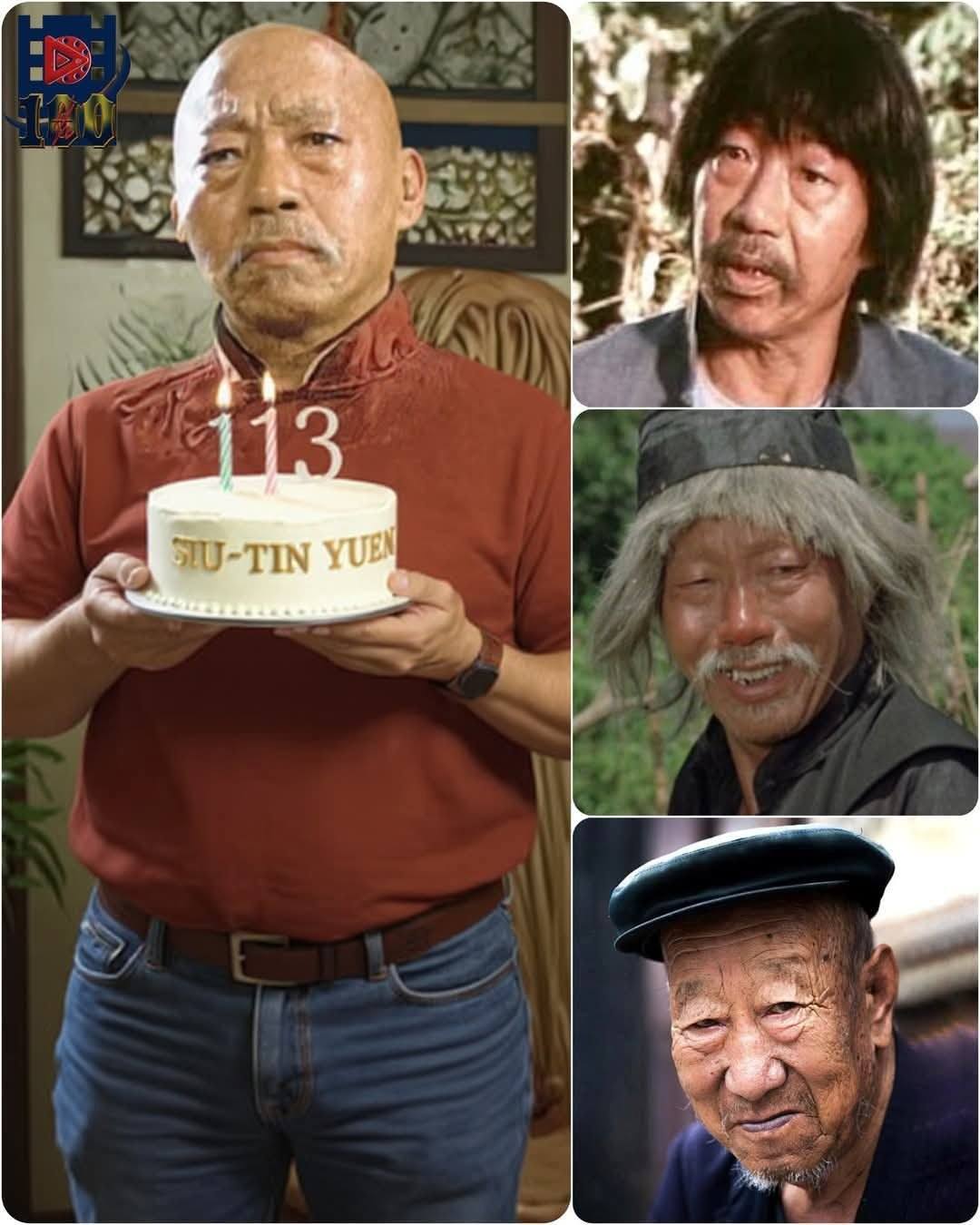Siu-Tin Yuen: The Timeless Legacy of a Martial Arts Legend


Siu-Tin Yuen: The Timeless Legacy of a Martial Arts Legend
Celebrating 113 Years of Influence, Wisdom, and Unforgettable Cinema
On what would have been his 113th birthday, the world pauses to honor Siu-Tin Yuen—one of the founding fathers of martial arts cinema and a revered figure in the history of Hong Kong film. Known widely for his unforgettable portrayal of the iconic Beggar So character in the “Drunken Master” series, Yuen Siu-Tin was far more than just an actor. He was a bridge between tradition and innovation, performance and authenticity, humor and discipline.
Today, decades after his passing, his impact still resonates deeply in the world of martial arts and cinema. Through his roles, his teaching, and his family lineage, Yuen left behind a legacy that transcends time—a legacy built on storytelling through combat, spiritual discipline, and sheer charisma.
The Early Years: A Life Shaped by Performance and Discipline
Born on November 27, 1912, in China, Yuen Siu-Tin came of age during a time of great change and cultural transformation. From a young age, he was immersed in the world of Peking opera—a rigorous and physically demanding performance art that combined music, drama, and martial arts. It was within this traditional framework that Yuen would build the foundations for his acting style, physical agility, and understanding of movement.
The training was brutal by today’s standards, demanding not only physical endurance but also immense emotional discipline. Students were taught to move with grace, speak with authority, and fight with rhythm. This rigorous early education would later inform every aspect of Yuen’s cinematic performance. He was not merely imitating martial arts on screen—he was living it.

Breaking into Cinema: The Rise of a Supporting Hero
Yuen Siu-Tin transitioned to film during the 1940s and 1950s, appearing in a variety of martial arts and drama roles. While not always in the lead, his performances stood out for their authenticity, timing, and depth. His characters often embodied a mix of wisdom, eccentricity, and silent strength—qualities that audiences found instantly endearing.
In a film industry dominated by young, agile leading men, Yuen carved out a space for the elder mentor figure—the sifu, the drunken master, the retired warrior who still had a few tricks up his sleeve. In this archetype, Yuen thrived.
The Iconic Role: Beggar So and the Drunken Master
It was in 1978, however, that Yuen Siu-Tin would find his most iconic role—as Beggar So, the mischievous yet powerful martial arts master in Drunken Master, directed by his son Yuen Woo-ping and starring a then-rising Jackie Chan. This film was a turning point, not just in Yuen’s career, but for martial arts cinema as a whole.
The character of Beggar So was unlike anything mainstream audiences had seen. He was old and unkempt, frequently drunk, and seemed like a fool. Yet behind the grizzled exterior lay a martial arts genius capable of unimaginable feats. The contrast between his comic persona and deadly skill made the character unforgettable.
Yuen’s portrayal gave martial arts films a new flavor. No longer were kung fu masters strictly stoic and reverent—they could be funny, unpredictable, even chaotic. The Drunken Boxing style (Zui Quan) he demonstrated in the film became an instant phenomenon. And with it, the genre evolved. Action was now laced with comedy, and the martial arts mentor was reborn in a new, dynamic image.
Yuen Woo-ping: Extending the Legacy
One cannot speak of Yuen Siu-Tin’s legacy without mentioning his son, Yuen Woo-ping. An acclaimed action choreographer and director in his own right, Woo-ping took his father’s principles of performance and martial discipline and brought them to the global stage.
From Crouching Tiger, Hidden Dragon to The Matrix trilogy and Kill Bill, Yuen Woo-ping’s choreography has captivated global audiences with a blend of traditional kung fu and modern cinematic flair. Every flip, kick, and slow-motion mid-air duel carries traces of the knowledge passed down by Siu-Tin Yuen.
The father-son collaboration on several films in the 1970s and early 1980s remains a high point in martial arts cinema. These films not only showcased action but offered lessons in humility, resilience, and inner strength. That dynamic—an aging master teaching a brash young student—was as real off-screen as it was on.

The Power of Archetype: More Than Just a Role
The character of Beggar So has become a staple in kung fu cinema, appearing in numerous adaptations and parodies. But none have matched the original’s charm and depth. Siu-Tin Yuen didn’t just act—he created an archetype.
In many ways, Beggar So was a mirror of Yuen himself. A man who appeared rough but was deeply wise. A teacher who never stopped learning. An elder who didn’t command respect through fear, but through humor, humility, and sheer mastery of his craft.
This character spoke to both Eastern and Western audiences, breaking down cultural barriers with physical comedy, universal themes, and the timeless appeal of the underdog. He proved that the old have something vital to offer—and that age, far from a limitation, could be a source of power.
Passing and Legacy
Sadly, Yuen Siu-Tin passed away in 1979, shortly after completing work on Dance of the Drunk Mantis. His death marked the end of an era, but his influence only grew stronger in the years that followed.
Generations of martial arts actors—from Jet Li and Donnie Yen to Tony Jaa and Michelle Yeoh—owe a part of their craft to the trail Yuen helped blaze. Through his son and the many actors he influenced, his spirit continues to leap, spin, and fly across screens worldwide.
Film historians now see Yuen not just as an actor, but as a keystone figure in Asian cinema—a man who helped shape the tone, structure, and emotional resonance of martial arts film. His work laid the groundwork for kung fu comedy, mentor-student narratives, and choreography that marries fight and storytelling.
Still Relevant After 113 Years
In 2025, marking 113 years since his birth, fans around the world still pay tribute to Yuen Siu-Tin. Social media is filled with birthday wishes, tribute art, and video clips of his most memorable scenes. Young martial artists cite him as an inspiration. Directors still borrow from his timing, his humor, his physical storytelling.
There is something truly remarkable about an actor whose work remains fresh and inspiring more than a century after his birth. And it’s not just nostalgia—it’s relevance. In a world that often forgets its roots, Yuen Siu-Tin reminds us of the power of tradition, the value of mentors, and the eternal appeal of the wise fool.

The Essence of His Art
What made Siu-Tin Yuen’s performances so impactful? It was not just his technique—though his mastery of timing, rhythm, and expression was unparalleled. It was his heart. He imbued every scene with sincerity, regardless of how comedic or absurd it seemed on the surface.
He believed in martial arts not just as a fighting technique, but as a philosophy. A way to live. A way to be disciplined, humble, and resilient. He didn’t have to explain it—he showed it, in every shuffle, every sway, every swig from a wine gourd.
Even as he played the drunkard, he remained a sage.
A Global Symbol of Mastery
Though he spent most of his life in China and Hong Kong, Yuen Siu-Tin’s influence is undeniably global. Martial arts schools around the world reference scenes from Drunken Master as both educational tools and cultural treasures. Academics study his roles for their impact on genre evolution. And fans—old and new—continue to be enchanted by his screen presence.
He’s been referenced in video games, cartoons, and even hip-hop lyrics. And yet, he remains an enigma to many—humble, elusive, and larger than life.
A Life Worth Celebrating
Siu-Tin Yuen wasn’t just a martial artist or a film star. He was a symbol—a living embodiment of values that transcend generations: perseverance, humility, and humor in the face of adversity. His work helped elevate martial arts cinema into an art form that blends action, narrative, and philosophy.
As we honor his 113th birthday, we don’t just remember the man—we remember the lessons he taught us. That strength doesn’t always roar. That wisdom often wears a crooked smile. That the greatest fighters are those who never stop learning.
May his legacy continue to inspire every kick, every fall, and every rise.
Happy Birthday, Master Yuen Siu-Tin. The world still bows to your spirit.











